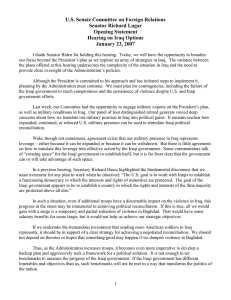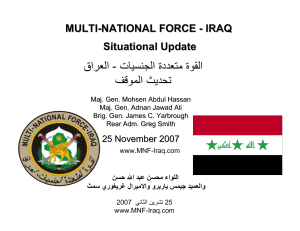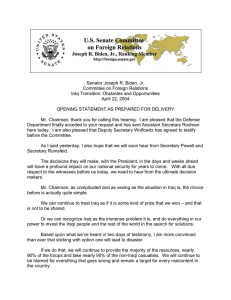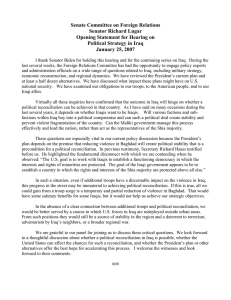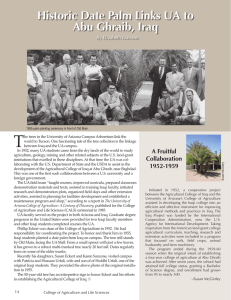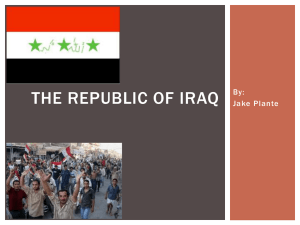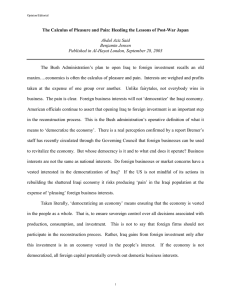Senate Committee on Foreign Relations Senator Richard Lugar The Iraq Study Group
advertisement
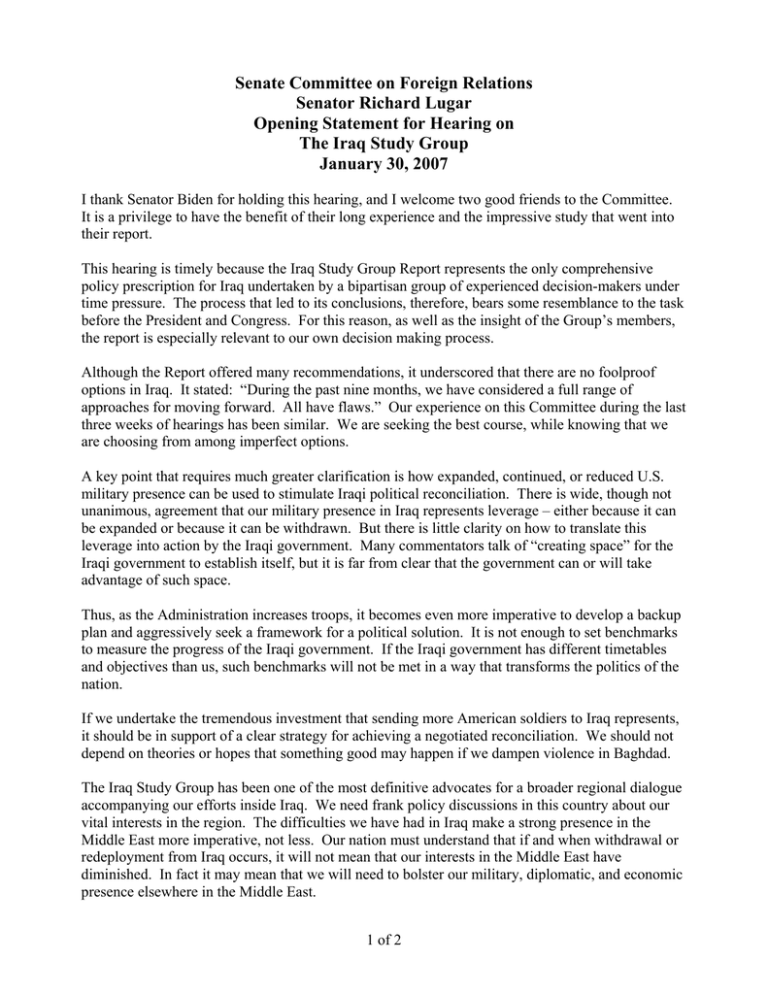
Senate Committee on Foreign Relations Senator Richard Lugar Opening Statement for Hearing on The Iraq Study Group January 30, 2007 I thank Senator Biden for holding this hearing, and I welcome two good friends to the Committee. It is a privilege to have the benefit of their long experience and the impressive study that went into their report. This hearing is timely because the Iraq Study Group Report represents the only comprehensive policy prescription for Iraq undertaken by a bipartisan group of experienced decision-makers under time pressure. The process that led to its conclusions, therefore, bears some resemblance to the task before the President and Congress. For this reason, as well as the insight of the Group’s members, the report is especially relevant to our own decision making process. Although the Report offered many recommendations, it underscored that there are no foolproof options in Iraq. It stated: “During the past nine months, we have considered a full range of approaches for moving forward. All have flaws.” Our experience on this Committee during the last three weeks of hearings has been similar. We are seeking the best course, while knowing that we are choosing from among imperfect options. A key point that requires much greater clarification is how expanded, continued, or reduced U.S. military presence can be used to stimulate Iraqi political reconciliation. There is wide, though not unanimous, agreement that our military presence in Iraq represents leverage – either because it can be expanded or because it can be withdrawn. But there is little clarity on how to translate this leverage into action by the Iraqi government. Many commentators talk of “creating space” for the Iraqi government to establish itself, but it is far from clear that the government can or will take advantage of such space. Thus, as the Administration increases troops, it becomes even more imperative to develop a backup plan and aggressively seek a framework for a political solution. It is not enough to set benchmarks to measure the progress of the Iraqi government. If the Iraqi government has different timetables and objectives than us, such benchmarks will not be met in a way that transforms the politics of the nation. If we undertake the tremendous investment that sending more American soldiers to Iraq represents, it should be in support of a clear strategy for achieving a negotiated reconciliation. We should not depend on theories or hopes that something good may happen if we dampen violence in Baghdad. The Iraq Study Group has been one of the most definitive advocates for a broader regional dialogue accompanying our efforts inside Iraq. We need frank policy discussions in this country about our vital interests in the region. The difficulties we have had in Iraq make a strong presence in the Middle East more imperative, not less. Our nation must understand that if and when withdrawal or redeployment from Iraq occurs, it will not mean that our interests in the Middle East have diminished. In fact it may mean that we will need to bolster our military, diplomatic, and economic presence elsewhere in the Middle East. 1 of 2 I have urged the Bush Administration to be aggressive and creative in pursuing a regional dialogue that is not limited to our friends. If we lack the flexibility to communicate with unfriendly regimes, we increase the chances of miscalculations, undercut our ability to take advantage of any favorable situations, and potentially limit the regional leverage with which we can confront Iran and Syria. Again, I welcome our distinguished guests and look forward to a thoughtful hearing. ### 2 of 2

